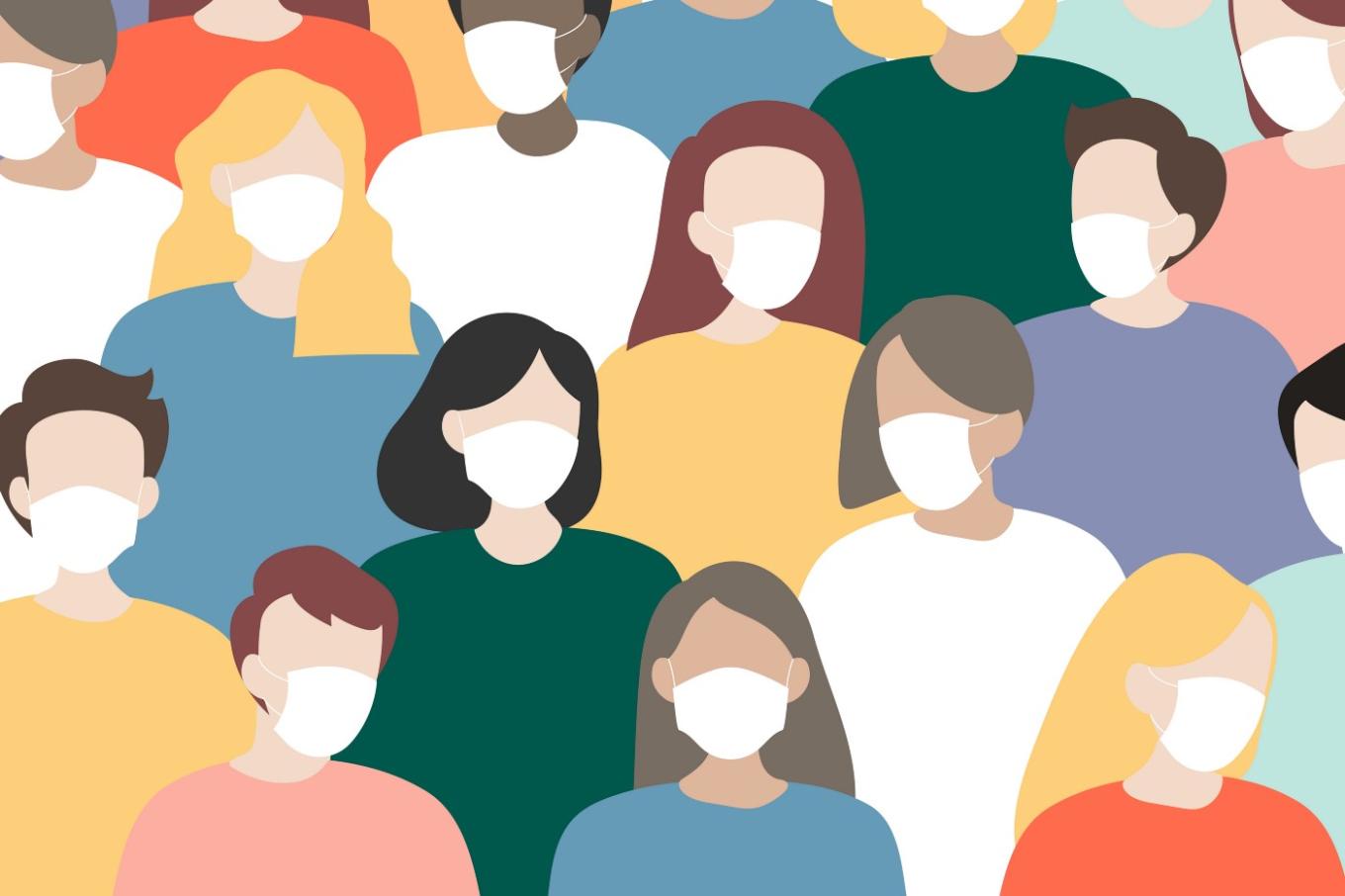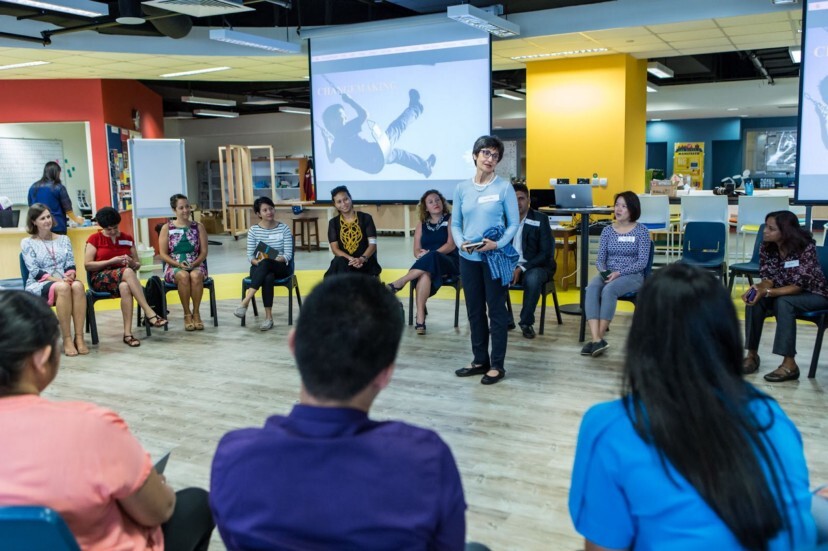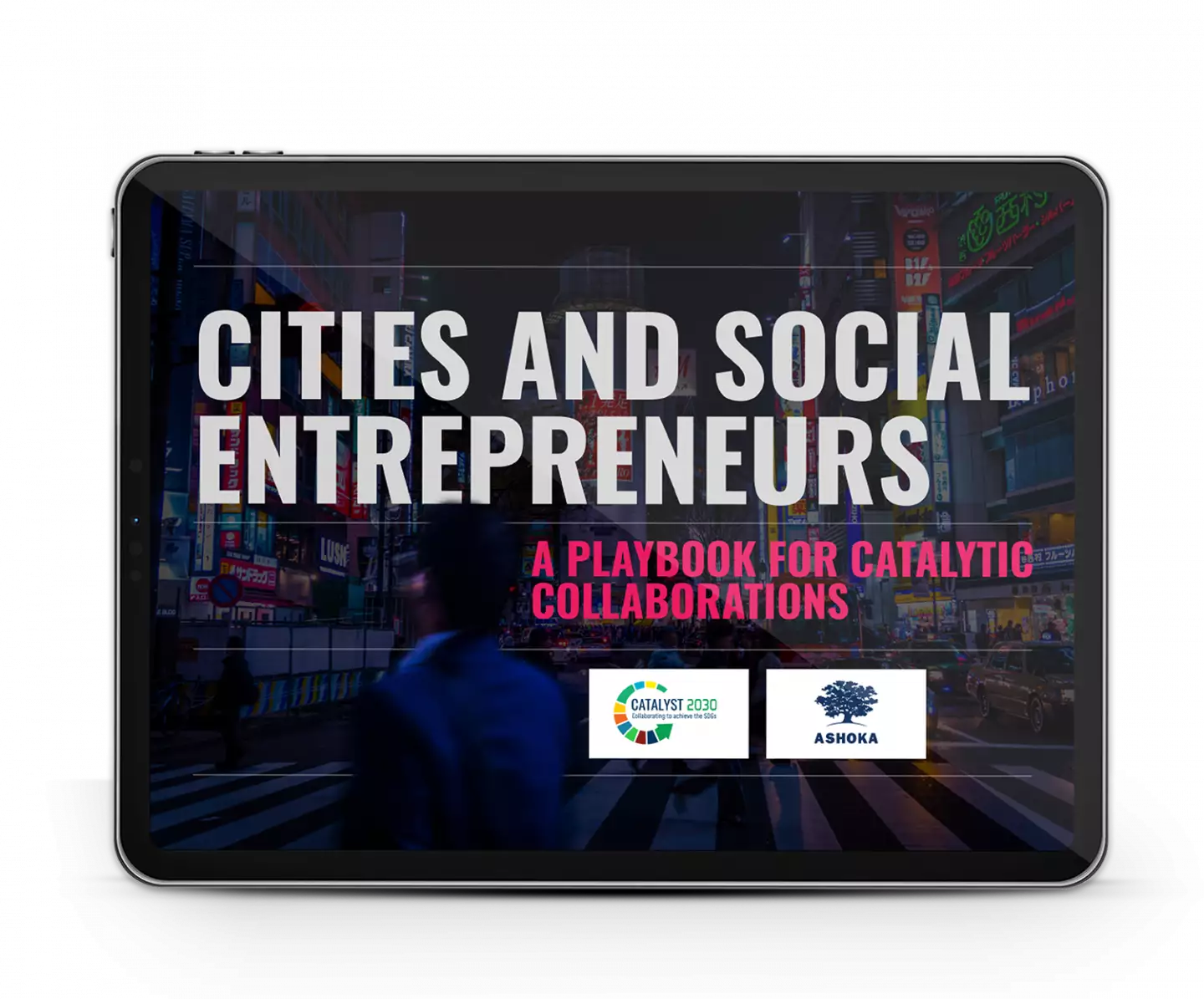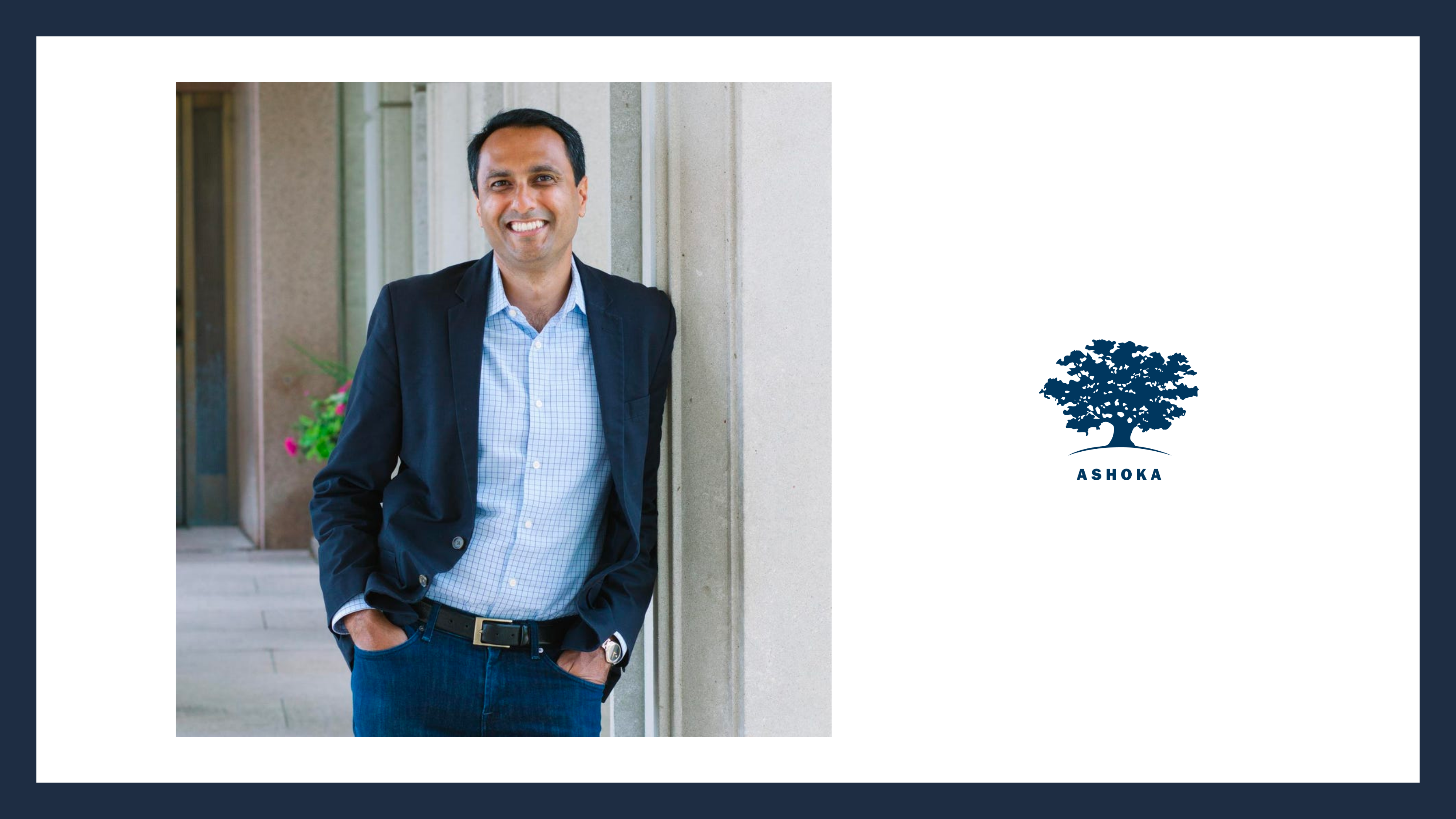
This piece is the second in a series of reflections on virtual conversations during the #ChangemakersUnited Summit hosted by Ashoka featuring 19 Ashoka Fellows. You can find full recordings of the summit here.
By Morgan Cole
When the Covid-19 pandemic hit, Ashoka Fellow Jérémy Lachal saw that many refugees already knew how to respond. As people struggled to cope during lockdown, elders in Denmark offered advice from their own experience with isolation. And when lockdown increased risk of domestic abuse, domestic violence survivors in Spain empowered others to escape their situation.
Each of these communities — refugees, elders, and women facing domestic violence — are frequently labelled vulnerable. Yet the language of “vulnerability” overlooks the resilience and unique strength born out of facing challenging circumstances.
During the #ChangemakersUnited online summit in May, we spoke with Ashoka Fellows on how they’re seeing people convert challenges into a source of power, stepping up to support each other during crisis.
Survivors lift each other up
When we were all told to stay inside during lockdown, those experiencing domestic violence faced an impossible choice: stay with their abuser or disobey the law. Both options had life and death consequences.
Ashoka Fellow Ana Bella Estévez and her organization Fundación Ana Bella are shining a light on the unique challenges of women facing gender-based violence during lockdown. Supported by Fundación Ana Bella, domestic violence survivors are encouraging others to flee their situation. They launched a campaign, #dontstayathome, to urge those dealing with domestic violence to not stay isolated:
“Use your strength and your will to not stay confined with your abuser, but to break free from violence. Do not stay at home, you deserve to be a happy survivor like us. You are not alone.”
The community of survivors not only understands the needs of those facing domestic violence — they’re the only ones who can communicate to the rest of the world during lockdown what it’s like to live with one’s abuser. As millions were locked inside their own homes, this community of domestic violence survivors used the current situation to inspire more empathy for those faced with domestic violence and encourage neighbours to act as changemakers detecting and breaking the silence for those women confined with their abusers.
Refugee communities lead with resilience
Although it may seem like refugee communities are more vulnerable to crises like COVID-19, Ashoka Fellow Jérémy Lachal of Bibliothèques Sans Frontières, explains that they are far more resilient than many believe. Because many members of refugee communities have had direct experience with disease outbreaks, they were more equipped with knowledge for dealing with the pandemic.
“It is very hard for us to [truly understand] what the crisis means on the other side of the world,” Jérémy said. “The reality is that for now the crisis is quite well controlled in Africa…People are well aware of how to protect themselves from these kinds of diseases. They went through the Ebola and cholera crisis already.” Experiences with outbreaks, which have affected many in refugee communities, empower refugees to deal with our present reality.
Elders share wisdom for isolation
For many older members of society, isolation is not new. During the lockdown, as we all became very aware of what it is like to feel so alone, it became clear that young people have much to learn from older generation’s experience with isolation.
Ashoka Fellow Ole Kassow and his organization Cycling without Age, which works with older communities, has a close relationship with those who are elderly and alone. Cycling without Age teams up volunteers with elderly people to take them on bike rides, allowing both groups to feel less isolated and to break down social barriers. During lockdown, this immediately became impossible since elderly populations are especially at risk for Covid-19.
Although volunteers could no longer take them on rides, elders provided their own assistance to the volunteers, drawing from their daily experience of isolation to help others cope during lockdown times. The exchange demonstrates that everyone has something to offer and to receive.
“We don’t need to see anyone as the recipient or the beneficiary. We all are [beneficiaries] and givers,” Ole Kassow says.
Changemakers empower others to realize their own potential. We need to see one another first in terms of strengths, not weaknesses. What if we all reframed our idea of “vulnerability” as a place to locate our innate strength?
Maybe we would finally recognize there’s no limit to the change we can achieve together.
-
Morgan Cole is senior marketing and communications strategist with Ashoka’s European think tank, the Learning and Action Center, where he disseminates Ashoka’s insights and knowledge.


